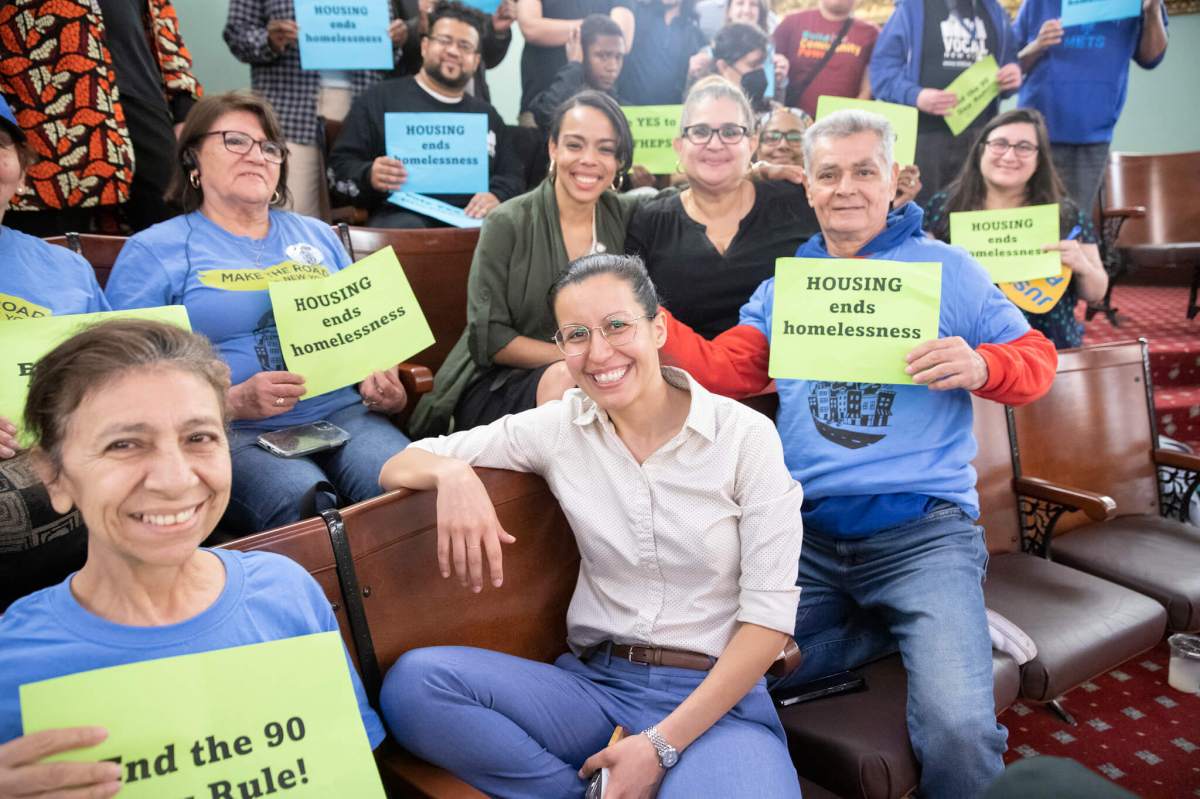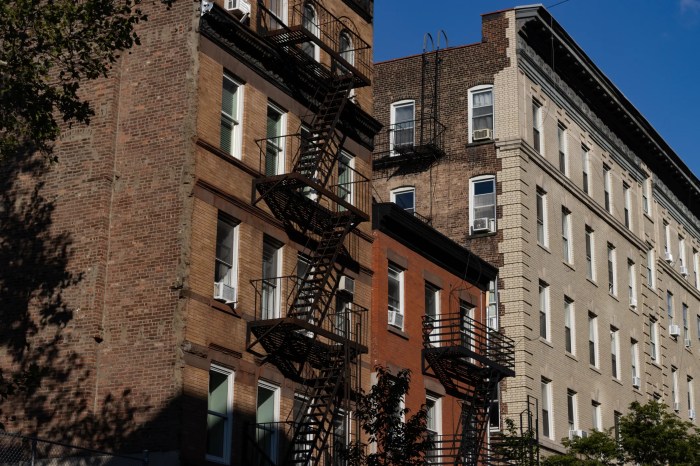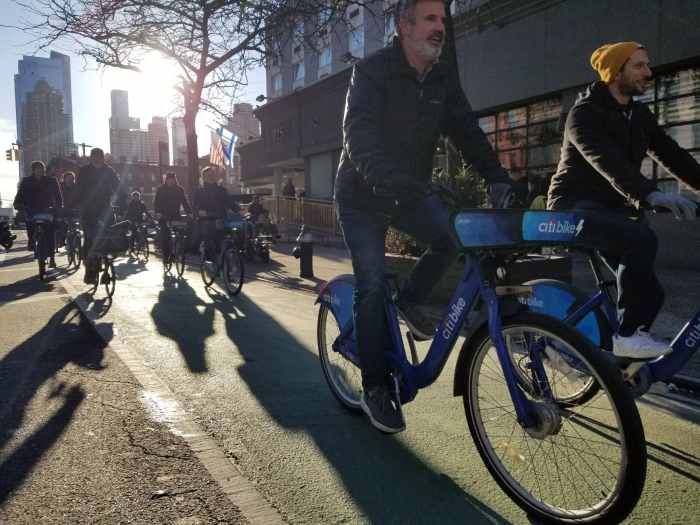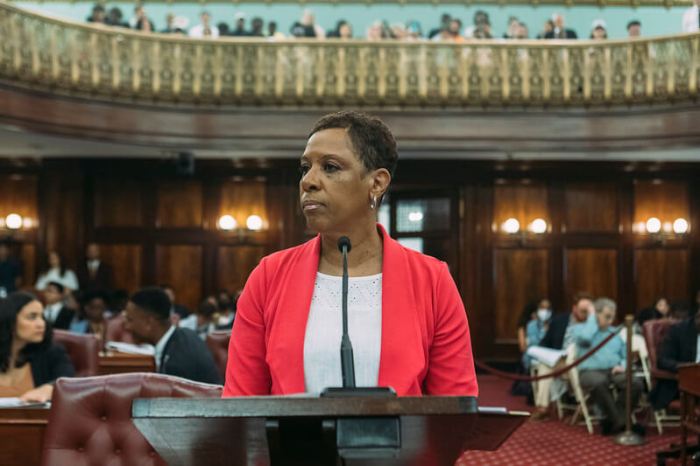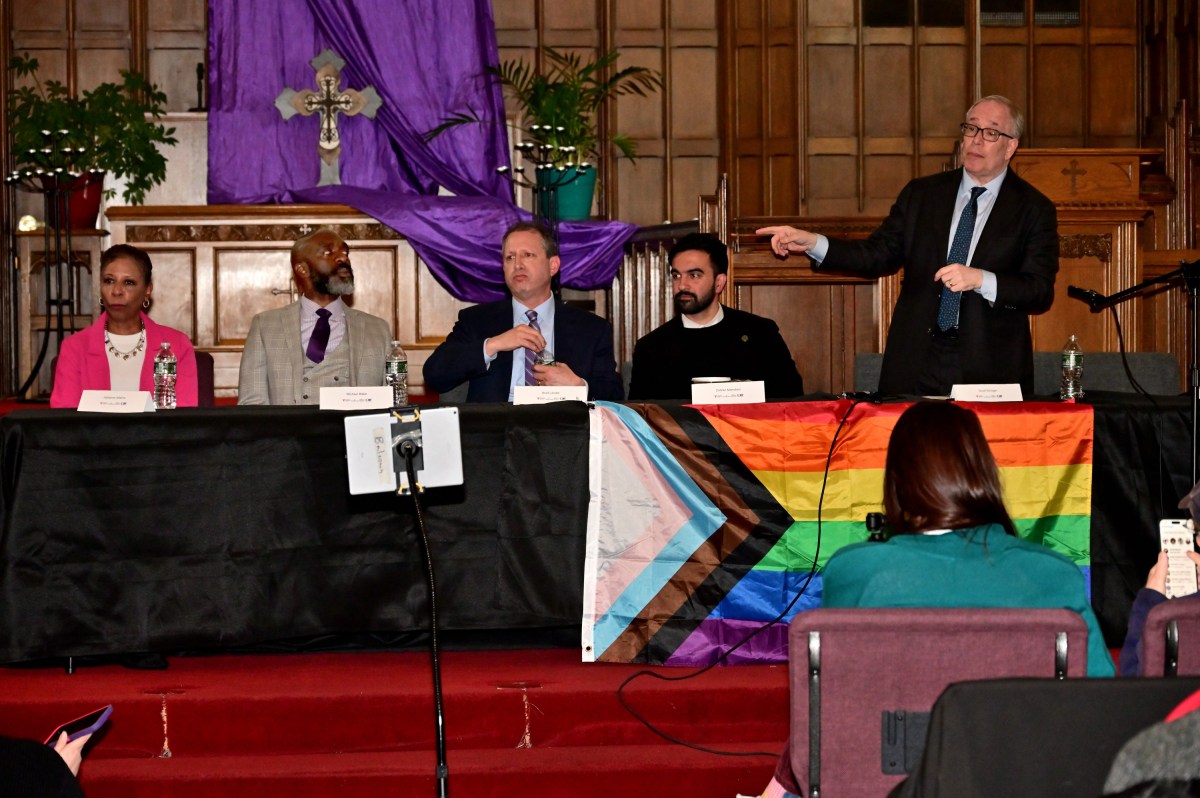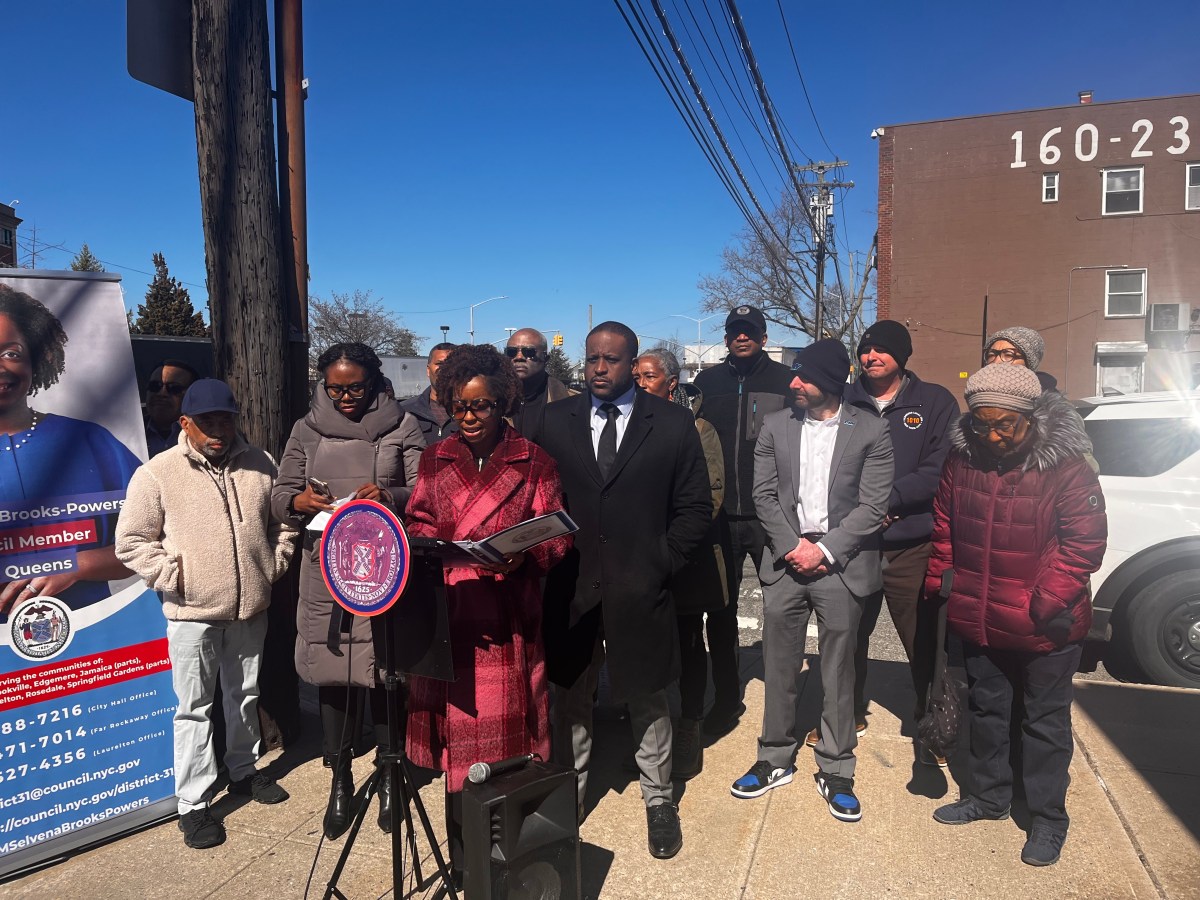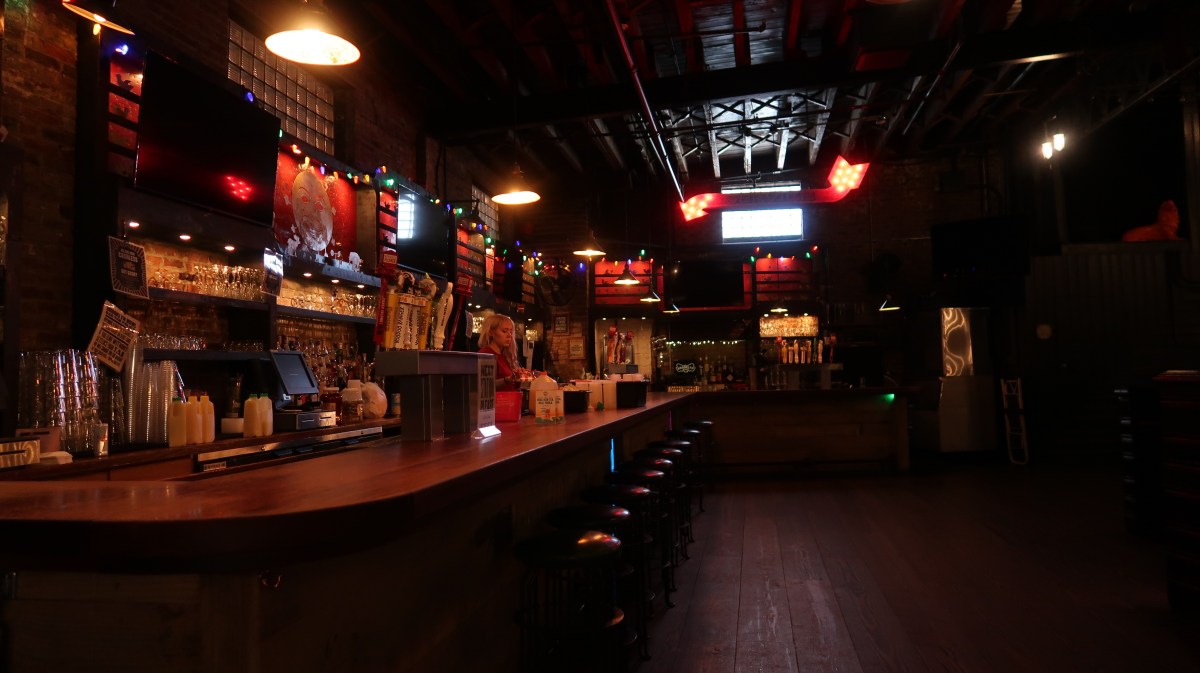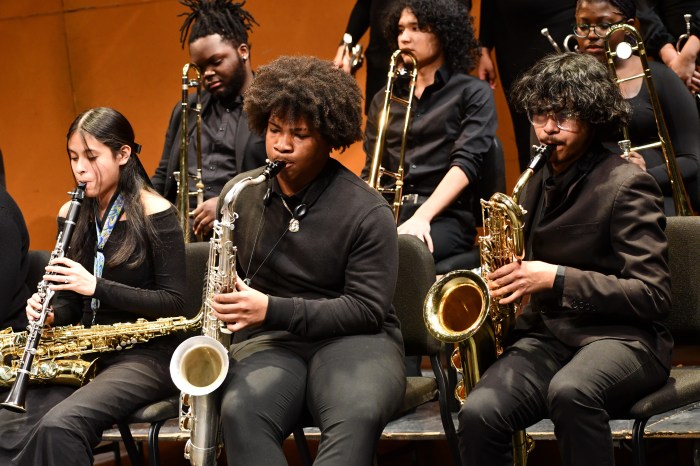The City Council on Thursday passed several controversial bills aimed at making it easier for homeless and very low-income New Yorkers to access city housing vouchers by a veto-proof majority, meaning the body can override a possible down-vote from Mayor Eric Adams, who opposes the package.
The bills’ passage over the mayor’s protests sets up a possible showdown between the two sides of City Hall, with the mayor’s press secretary, Fabien Levy, saying they’re “reviewing our options.” But each of the four bills in the package passed the 51-member body by a 41-7 vote, with no abstentions, during a Thursday afternoon meeting, meaning the council has the needed two-thirds majority to override Adams’ veto.
The council members behind the package argue it will help move more New Yorkers out of costly stays in the city’s homeless shelter system and into permanent housing. Lawmakers are pushing for the legislation at a time when the city’s shelter population has swelled to over 80,000 people, driven in large part by an influx of tens of thousands of asylum seekers into the Big Apple over the past 12 months.
The package is designed to make CityFHEPS rental assistance vouchers accessible to far more people by eliminating current eligibility hurdles.
“Through my own experiences, I intimately understand the difficulty and trauma of losing your home and living in a shelter,” Deputy Council Speaker Diana Ayala, who’s formerly homeless and sponsored one of the bills, said in a statement.
“No New Yorker should have to experience homelessness and remain in a shelter for an arbitrarily long time in order for the City to provide assistance,” she added.
Specifically, one of the bills would nix a rule that individuals must spend at least 90 days in city shelters in order to access the vouchers — known as the 90-day rule. That was the only bill in the bunch not opposed by the mayor.
The measures that did draw pushback from City Hall would expand eligibility to any applicant deemed “at risk of eviction or experiencing homelessness,” remove the requirement that someone show they are employed in order to access the subsidy and change the income threshold from 200% of the federal poverty level to 50% of the Area Median Income (AMI). Another bill would bar the city from deducting a portion of the total voucher amount recipients get for utility costs, as is currently the practice.
During a news conference before the bills were approved, Council Speaker Adrienne Adams said their passage would ease the strain on the city’s overburdened shelter system by allowing more shelter occupants to access vouchers in a shorter timeframe and move into permanent housing. That would help lessen the city’s immense spending on both its homeless shelter system and its emergency lodgings created to accommodate migrants, which the speaker said cost far more than the rental vouchers.
“CityFHEPS vouchers can be a powerful tool to help us, but the city’s arcane policies in administering them are counterproductive,” the speaker said. “Why deny access to housing vouchers that can help secure permanent housing? This is a solution to help reduce homelessness, stabilize communities, free up space for asylum seekers and others, all while saving money on costly emergency shelters that skew far more expensive than traditional shelter models while offering fewer services.”
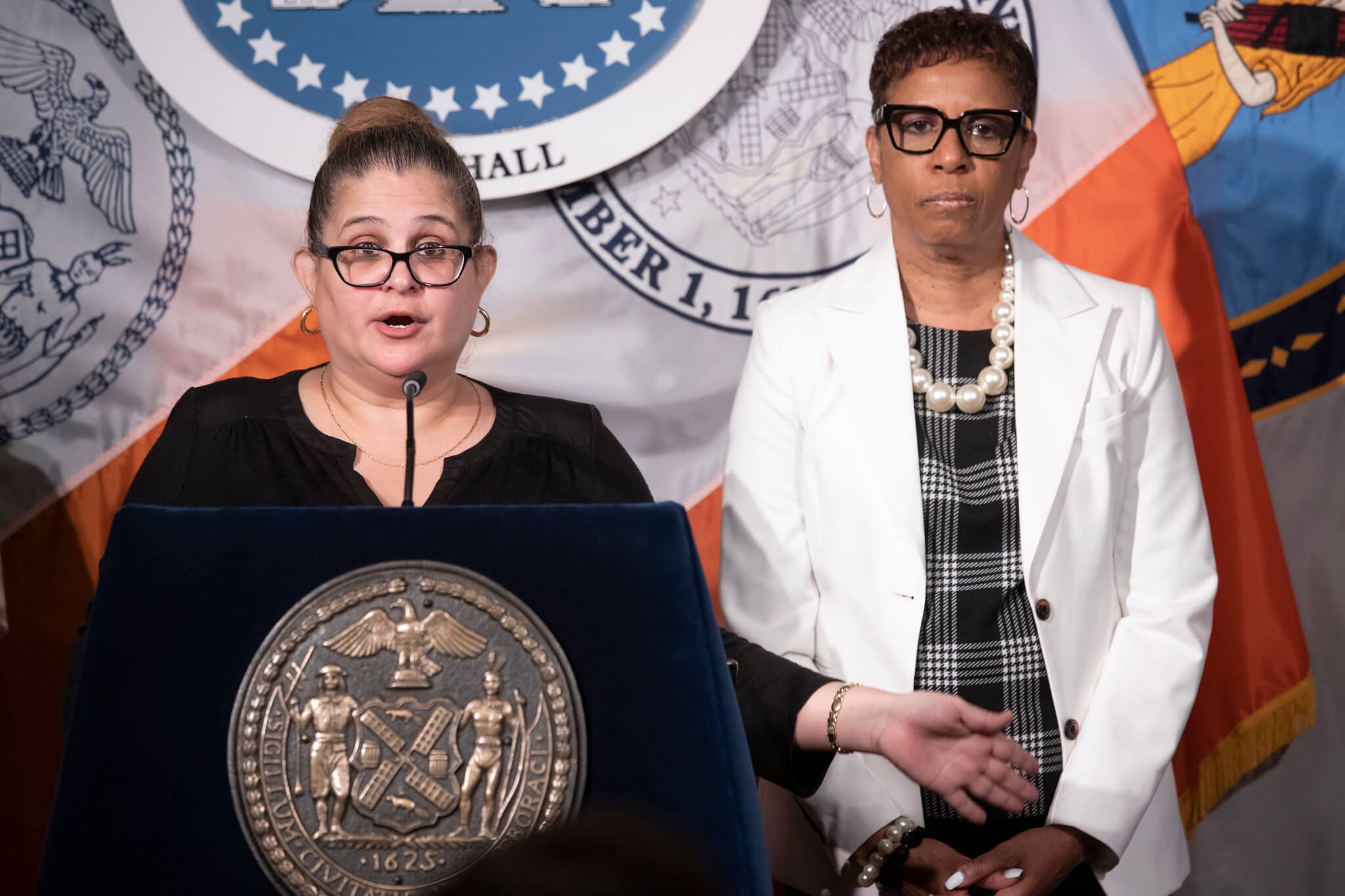
Former City Council Speaker Christine Quinn, who runs the shelter provider nonprofit WIN, and has long sought to expand CityFHEPS eligibility, said she believes the package will benefit the women her organization serves by allowing them to look for housing as soon as they start their shelter stays.
“About 11.1 months, is our average stay at WIN,” Quinn said. “So to be able to shorten that, that’s not only a good thing for a mom and her mental health, it’s an outstanding thing for children … This is going to help our families move out more quickly and make it less likely that they return to shelter.”
Quinn added that 0.03% of homeless families who leave shelter with a voucher end up returning.
But Levy, in a statement following the vote, said the bills will do the opposite of their stated goal, because making the vouchers more widely available would create a greater backlog and make them accessible to those who don’t actually need them. Furthermore, Levy said, the legislation also carries a daunting price tag, as it would cost an estimated $17 billion over the next five years.
“Nearly 20,000 existing voucher holders who cannot currently find housing because of the extremely low vacancy rate in our city would be lumped in with thousands more, including anyone who stops paying rent, for any reason, if they are below 50 percent of area median income,” Levy said. “Put simply, these bills will keep New Yorkers experiencing homelessness, the ones who need permanent housing right now, in shelter for longer.”
“Additionally, the City Council is adding $17 billion in costs over the next five years — something that is hard not to view as an attempt to force a tax increase on New Yorkers,” he added.
Administration officials have noted they were willing to work with the council on passing the bill amending the 90-day rule by itself, but lawmakers rejected that effort.
Shams DeBaron, a homelessness advocate who often works closely with the mayor’s office, said he thinks the increased eligibility will incentivize those in New York who don’t actually need the vouchers to apply for them and people from outside of New York City to come here just to access them.
“What [would] end up happening is people that see that, ‘if I go to the shelter, I’m going to get a voucher, we’re going to not only have New Yorkers do that, because I definitely would do that, but we’re going to have people from across the country,” DeBaron said. “We’re gonna see them flock to New York City to access a voucher.”
Speaker Adams and Ayala, however, both pushed back on those criticisms. The Speaker said City Hall’s cost estimation is “exaggerated” and is “incorrectly” based on the city paying the entire cost of an apartment, which isn’t how the program works. She said the council estimates it will actually cost $10 billion over the next five years, as opposed to the administration’s projection of $17 billion.
Ayala said the responsibility for the backlog that already exists in processing CityFHEPS applications falls squarely on City Hall, which hasn’t hired the necessary staff to address the torrent of applicants. Additionally, she challenged the idea that people who don’t actually need the vouchers are going to take advantage of the widened eligibility.
“In order to qualify for a CityFHEPS voucher you need to be in poverty,” Ayala said. “Who in their right mind wants to live that way? If they have another option, ask yourself that.”
Read more: NYCHA Lawsuit Over Lead Paint Hazards



